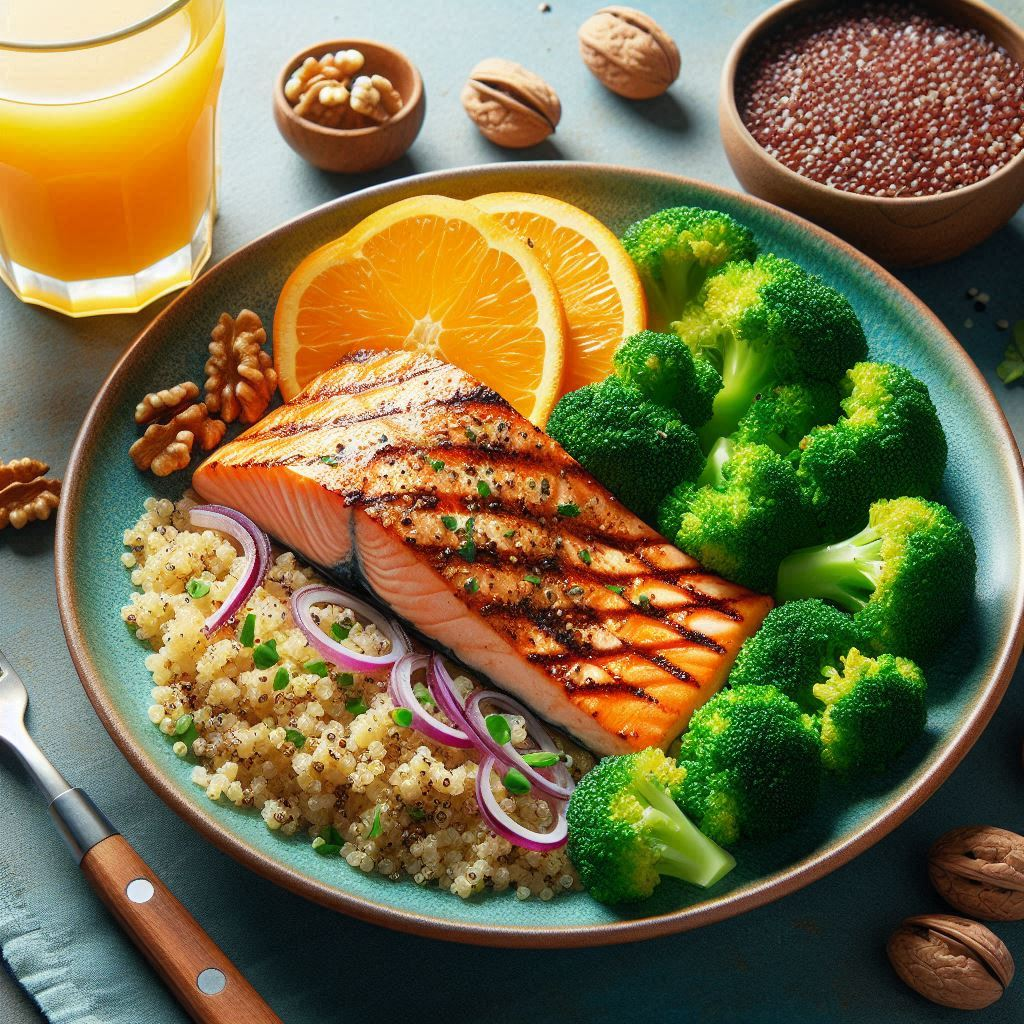
Omega-3 fatty acids: An essential nutrient
Omega-3 fatty acids are indeed essential nutrients with a range of important health benefits. They are a type of polyunsaturated fat that the body cannot produce on its own, so they must be obtained through the diet.

Health Benefits
- Cardiovascular Health: Omega-3s are well-known for their heart health benefits. They can help lower blood pressure, reduce triglycerides, and decrease the risk of heart disease and stroke.
- Brain Function: DHA is a major structural component of the brain and is crucial for cognitive function. Adequate intake of omega-3s is associated with a lower risk of cognitive decline and may support mental health by reducing symptoms of depression and anxiety.
- Inflammation: Omega-3s have anti-inflammatory properties that can help manage chronic inflammatory conditions such as arthritis.
- Eye Health: DHA is also an important component of the retina, and adequate intake can support good vision and reduce the risk of age-related macular degeneration.
- Pregnancy and Development: Omega-3s are important for fetal development, particularly for brain and eye development. They may also help reduce the risk of preterm birth and postnatal depression in mothers.
Sources
- Fatty Fish: Salmon, mackerel, sardines, and herring are excellent sources of EPA and DHA.
- Plant-Based Sources: Flaxseeds, chia seeds, hemp seeds, and walnuts provide ALA.
- Fortified Foods: Some eggs, milk, and other products are fortified with omega-3s.
- Supplements: Fish oil and algae oil supplements are popular options for those who don’t get enough omega-3s from their diet.
Dietary Source of Omega 3
Fatty Fish
- Salmon: One of the best sources of both EPA and DHA.
- Mackerel: High in both EPA and DHA.
- Sardines: Rich in omega-3s and also lower in contaminants.
- Herring: Another good source of EPA and DHA.
- Anchovies: Small fish but packed with omega-3s.
Plant-Based Sources
- Flaxseeds: Ground flaxseeds or flaxseed oil are excellent sources of ALA.
- Chia Seeds: High in ALA and also provide fiber.
- Walnuts: A good source of ALA and can be easily added to various dishes.
- Hemp Seeds: Provide a balanced ratio of omega-3 to omega-6 fatty acids.
- Brussels Sprouts: Contain small amounts of ALA.

Tips for Incorporation
- Include Fatty Fish in Your Diet: Aim to eat fatty fish at least twice a week.
- Add Seeds to Meals: Sprinkle flaxseeds or chia seeds on yogurt, salads, or cereals.
- Use Omega-3 Oils: Use flaxseed oil or walnut oil in salad dressings or as a finishing oil for dishes.
General Recommendations
- Alpha-Linolenic Acid (ALA):
- Men: Approximately 1.6 grams per day.
- Women: Approximately 1.1 grams per day.
- Specific Populations
- Pregnant and Breastfeeding Women: It’s generally recommended to consume at least 200-300 milligrams of DHA per day to support fetal and infant brain development. Many prenatal vitamins and supplements are formulated with this in mind.
- Individuals with Heart Disease: Higher doses, typically around 1,000-4,000 milligrams (1-4 grams) of EPA and DHA combined per day, may be recommended under medical supervision to help manage heart disease.










